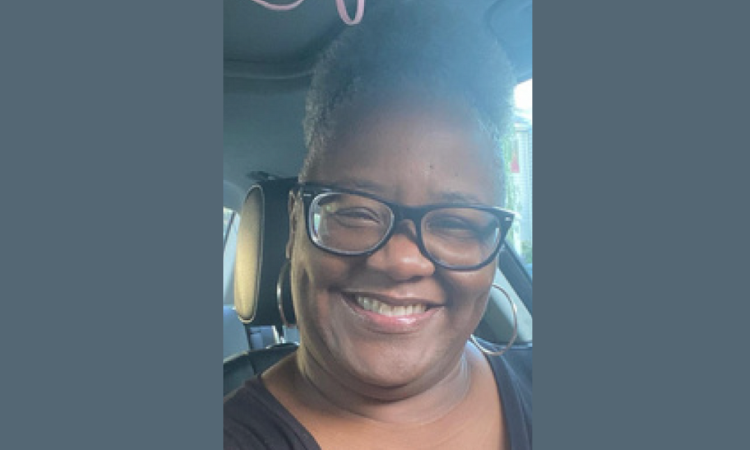
Name and Position at Region Ten: Nikki Jones, Housing Stabilization Case Manager.
Where are you from? I am originally from Brooklyn, New York, but I have lived in Charlottesville for the last 30 years.
What drew you to the mental health field? I was raised in a high-risk area in the projects of New York and many people around me struggled with mental health and substance use issues. As a child you start to figure out that something is off, but in the African-American community in the 1970s mental health was not talked about. I am so glad that Region Ten has been doing DEI work because there’s still a very strong stigma in marginalized communities when it comes to seeking mental health support. Knowing what I know now, many people in my family and community were struggling with mental health and substance use concerns. I’ve always been a person who wants to understand why and how these things happen, so I think being a naturally curious person is a big part of what led me to this field.
What are some of the highlights in your professional career? I received my GED at age 26 and my college degree at age 44 when I was working the night shift as a CSA at Region Ten’s Wellness Recovery Center. It was a really proud moment for me since I am the first person among my siblings to earn a Bachelor’s degree. I worked at JAUNT for 17 years as a driver, which I enjoyed, and during that time I was transporting a number of individuals served by Region Ten. My interest and passion for the mental health field really increased and started growing, so once I got my degree and QMHP certification, I was hired as an Assertive Community Treatment (ACT) Case Manager. I’ve always been a strong advocator for people who live in high-risk areas who have been through some of what I have experienced personally. When I started working for ACT I was able to hone my skills as an advocate and help give people a voice that oftentimes did not have one. My clients know that I work hard for them so a highlight is having that connection with such a diverse number of clients. Working in this field keeps me humble.
What do you enjoy about your work at Region Ten? I love what I do! Working in human services has always been a passion of mine, and I love working with such a diverse population of people. My coworkers, as well as the senior leadership at Region Ten, are also very kind, compassionate, and understanding. My current role in the housing department is meaningful because there were times as a child when I spent the night on park benches in New York, so I really understand the importance of stable housing. If you do not have a stable housing situation then it is really difficult to manage mental health. I am able to offer encouragement to the people we serve, and it’s a gift to be able to do that every day.
What does BIPOC Mental Health Month mean to you? My great, great, great grandmother, as well her siblings, had to petition the court in Lexington, VA when their slave owner died. Their slave owner left a paper freeing them from slavery. In my family we are history keepers and historians, and I think it’s important to understand what has happened in the past so that we can learn from our mistakes. BIPOC Mental Health Month means that we all go through things and are going to need help at some point in our lives. When I talk with people I always tell them that their past does not have to dictate their future. I also think it’s really important to have a diverse workforce since that will make minorities feel more comfortable about getting support. I have found that most people want to seek help, but it’s important for them to know that they are going to be understood.